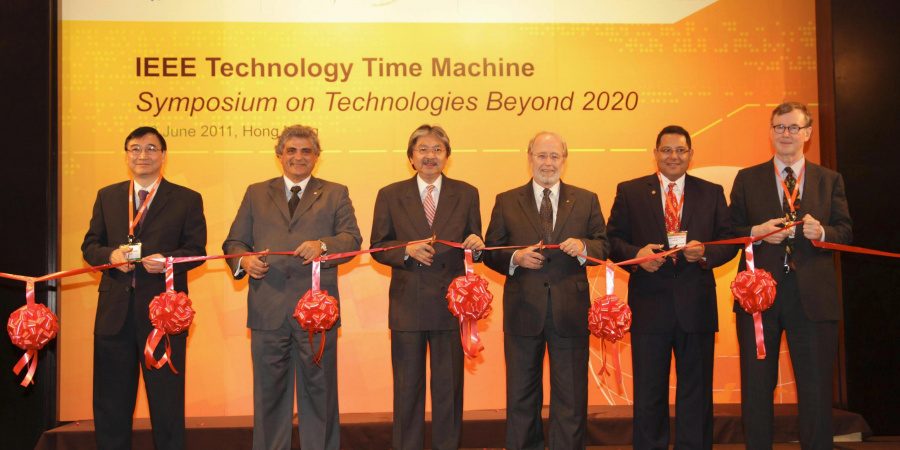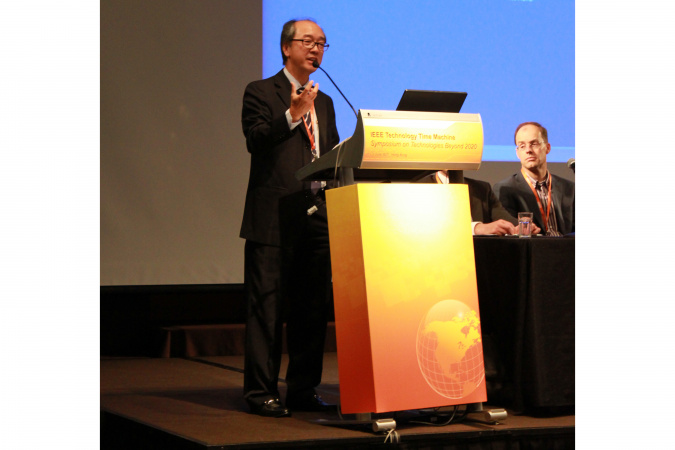HKUST Co-organizes IEEE Technology Time Machine Symposium in Hong Kong
The Hong Kong University of Science and Technology (HKUST) joins hands with the Institute of Electrical and Electronics Engineers (IEEE) and Hong Kong Applied Science and Technology Research Institute to launch the first IEEE Technology Time Machine (TTM) Symposium for three days from 1 June. Themed “Technologies beyond 2020”, the TTM Symposium covers a selected set of potentially high impact emerging technologies as well as their current state of maturity and scenarios for the future.
The kick off ceremony was officiated by Mr John Tsang Chun-wah, Financial Secretary of the Hong Kong SAR Government; Dr Gordon Day, IEEE President-Elect; and members of the TTM Organizing Committee, including General Co-Chair and HKUST Dean of Engineering Prof Khaled Ben Letaief. One of the core objectives of HKUST’s School of Engineering is to provide innovative and creative solution for industries and the society. Through co-hosting the Symposium, Prof Letaief hopes to drive strategic research planning in achieving this goal.
One of the key topics of the Symposium was ‘Global R&D Leaders’. At the panel discussion, HKUST President Tony F Chan stressed the importance for corporations to set up local R&D laboratories due to the large presence of universities of high quality in Hong Kong. As evidenced by the recent Quacquarelli Symonds (QS) Asian University Rankings, three out of the top five universities in Asia are situated in Hong Kong. President Chan also highlighted that business and industry should collaborate closely with universities to promote revolutionary innovative ideas.
Panelists of the discussion comprised of academics and corporate industry leaders, including Prof Teck Seng Low, Managing Director of A*Star Singapore; Mr Jan Färjh, Head of Ericsson Research in Sweden; and Dr Rico Malvar, Chief Scientist of Microsoft Research in USA. Together, they shared on innovation and advancement in areas ranging from radio access technology, biomedical sciences, implants of sensors in coronary arteries to human centric intelligent societies and new organic electronic materials.
This Symposium brought together around 200 experts in the field from all over the world. The three-day Symposium will end with sharing of local researchers about their works and applications in universities in Hong Kong.
Related link


